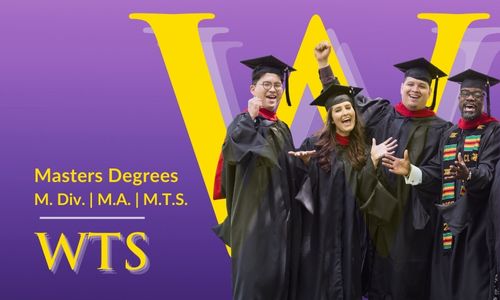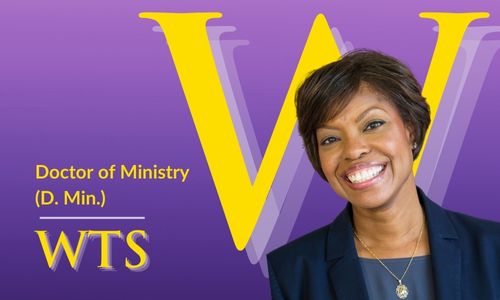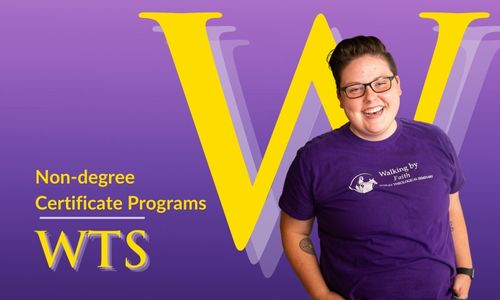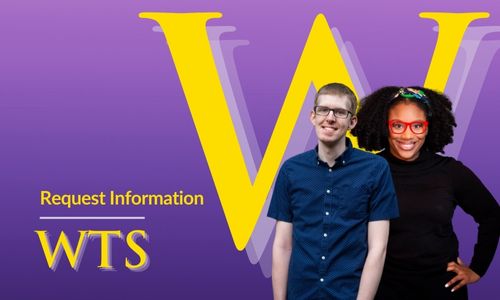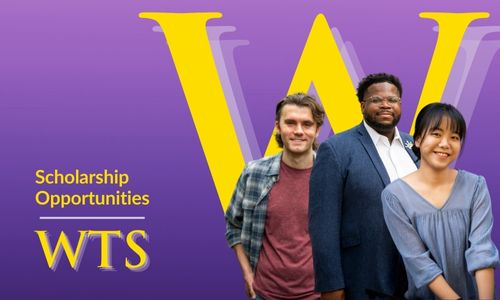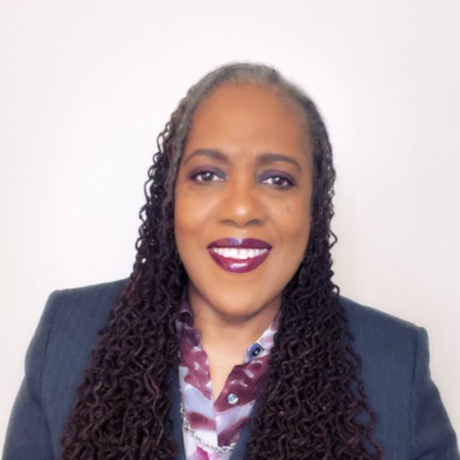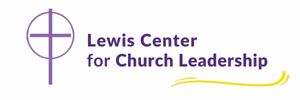Wesley Theological Seminary names Dr. Carla Works as new presidentDecember 22, 2025
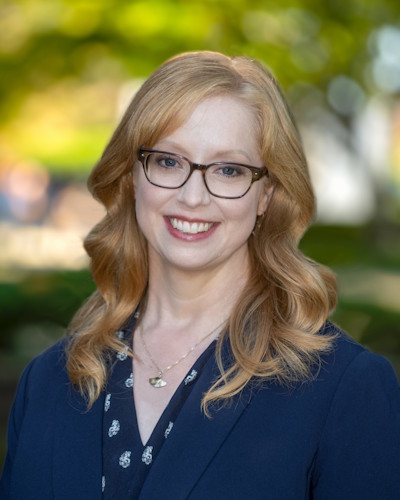 Dr. Carla Works has been named as New President of Wesley Theological Seminary.
Dr. Carla Works has been named as New President of Wesley Theological Seminary.
The Board of Governors is proud to announce that, effective July 1, 2026, Dr. Carla Works will be the next President of Wesley Theological Seminary—the first woman to serve in this role in the seminary’s history.
“Dr. Works is an astute visionary and a gifted leader whose theological depth, institutional wisdom, and courageous imagination equip her well to lead Wesley DC into its next chapter,” said Bishop LaTrelle M. Easterling, leader of the Baltimore-Washington Conference of the United Methodist Church.
Having served Wesley DC for seventeen years, first on faculty and then as our Dean, Dr. Works is passionate about teaching and learning in service to the church and our world. We look forward with thanksgiving and hope to this next chapter!
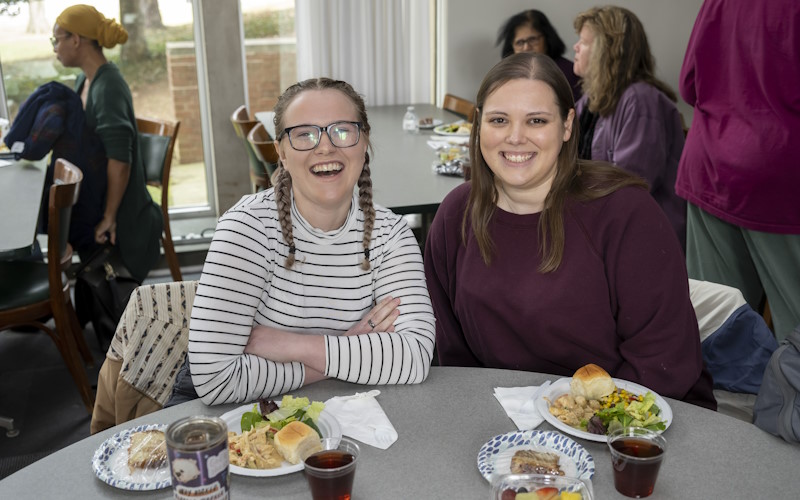
Upcoming Events
Tuesday, March 10
11:00 a.m.–1:30 p.m. ET
Oscar Romero Lecture
Rev. Tony Tian-Ren Lin, PhD preaching
Oxnam ChapelTuesday, March 17
12:00–1:30 p.m. ET
Faculty Book Celebration
RefectoryTuesday, March 24
12:00–1:30 p.m. ET
The Hub's Peeps Show Diorama Contest
RefectoryLink to register »
Wednesday, March 25
7:00–8:00 p.m. ET
Prospective Master’s Student Virtual Open House: “Window” on Wesley
“Window” on Wesley is an online open house event designed for prospective master's students hoping to attend Wesley Theological Seminary online, in-person, or a hybrid of both in Washington, DC!
ZOOM Link to register »Questions about joining an event? Email us at Admissions@wesleyseminary.edu.
Tuesday, April 7
10:00 a.m.–1:30 p.m. ET (with the option to sit in on a class until 3:00 p.m. ET)
Prospective Master’s Student In-person Open House: Welcome Table
Prospective master’s students, you’re invited to visit our next open house to discover our flexible master’s programs, and to experience classes, worship, and community at Wesley Theological Seminary.
Kresge, Board Room (to the right of the Art gallery)Link to register »
Questions about joining an event? Email us at Admissions@wesleyseminary.edu.
Monday, April 13
7:00–8:00 p.m. ET
Prospective Master’s Student Virtual Open House: “Window” on Wesley
“Window” on Wesley is an online open house event designed for prospective master's students hoping to attend Wesley Theological Seminary online, in-person, or a hybrid of both in Washington, DC!
ZOOM Link to register »Questions about joining an event? Email us at Admissions@wesleyseminary.edu.
Tuesday, April 14
11:00 a.m.–1:30 p.m. ET
Dr. Josiah Young Retirement Celebration
Oxnam Chapel and RefectoryTusday, April 28
11:00 a.m. ET
David McAllister-Wilson's Retirement Celebration
National United Methodist Church (Google Map »)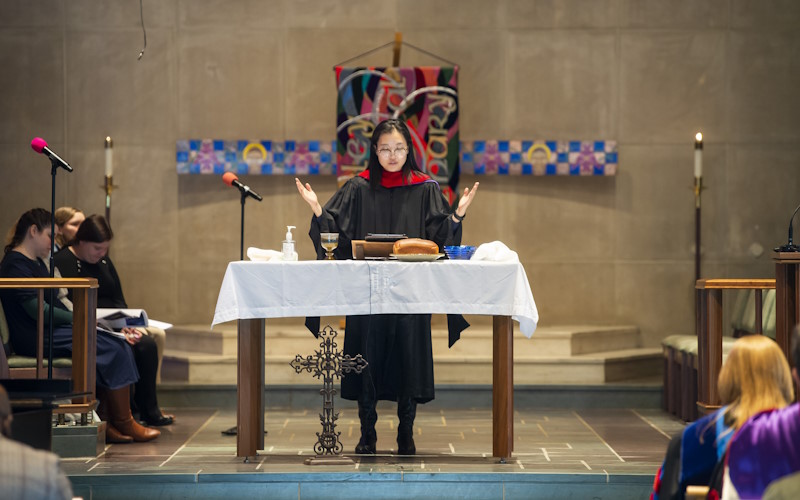
Oxnam Chapel Services
Join in-person or stream online
Chapel Services will resume in Fall 2025
Attend in person or view the livestream on our Facebook page »
March 10
Oscar Romero Lecture
Rev. Tony Tian-Ren Lin, PhD preachingMarch 17
Dr. Ashley Bogan preachingMarch 24
Innovation Hub service
March 31
Easter Recess Week, no regular service
Chapel open for prayerApril 7
Dr. Veronice Miles preachingApril 14
Dr. Josiah Young's Retirement Celebration
April 21
United2Love
April 28
President David McAllister-Wilson Retirement Celebration at the National United Methodist Church
No Service on CampusCommunity News
I Am Wesley
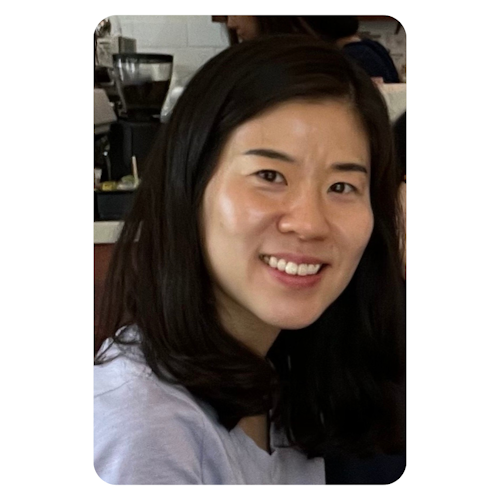

Yunah Kim | International Student Highlight
Hometown: Seoul, South Korea
Hello, I am Yunah Kim living in Seoul, South Korea. Currently I am studying the Global Asian D.Min. course and due to graduate in 2025. As the pastor's wife, I am in charge of Bible reading class for adults and Sunday worship service for youth group.
A friend of my husband's introduced the Wesley D.Min course to my husband. He was recommended to pursue the program, but he knew that I loved studying more than himself. So he suggested that I pursue this course, so I started the Wesley Global Asian D.Min course with excitement without knowing exactly what subjects I would be studying in the course. However, from the first semester until now, I feel that all the subjects in each semester were really necessary studies for me. My perspective on ministry has broadened, my thoughts on my role and identity as a pastor’s wife have been renewed, and I am receiving realistic help on how to help the saints grow in faith. After graduation, I will continue to help my husband for the growth of the church and the nurturing of believers.
Every morning I send a recording of the commentary to the saints so that they can read and meditate on two chapters of the Bible each day. On Sundays, I lead the middle and high school students worship service. On weekdays, I also have a job as a psychology teacher in the high school, so I am very interested in educating the next generation. Although I am a believer from birth, I first met God in my 20s and hoped that my life would be used by Lord. So, through my ministry, I hope that someone will be able to read the Bible more interestingly, receive grace, and obey God's will. I also try not to lose my own spirituality and pure heart for maturity. I am very grateful for my position as a pastor’s wife because I am experiencing the providence of the living God in the field of ministry more than anyone else.
The best thing about studying at Wesley is that the professors are great, and the textbooks and assignments are very helpful in gaining the wisdom needed in the ministry field. Also, there are pastors who work in different pastoral fields such as Mongolia, Kenya, China, and the United States studying together, which is very helpful in broadening my worldview.
It is truly enjoyable to see people from different socio-cultural backgrounds become one in the Lord, empathize and communicate. If the ministry does not continue to learn and grow like this, it will become a stagnant person and rot without knowing it. If anyone is hesitant about studying at Wesley Theological Seminary, I would say never hesitate. Because our Lord is surely pleased to see His workers learn and grow.
These days, I am deeply moved by the words of Isaiah 60:1, “Arise, shine, for your light has come, and the glory of the Lord has risen upon you.” Before the glory of the Lord descended on me, I was insignificant, but I am truly thankful that I can stand up as a person who shines the light of the glory of the Lord. I want to live as an existence of hope that shines the light of the Lord, not a meaningless life that shrinks in the midst of futility and discouragement. And I started running as a hobby this year. Thank God for giving me two healthy legs so that I can run, I am grateful for my energy, and most of all, I am grateful for losing weight.
Wesley Global D.Min is a course that I would highly recommend to all pastors. In particular, I know that I am the first pastor’s wife to study this course, and I strongly hope that a lot of pastor’s wives continue to be used as workers of the kingdom of God equipped with deep spirituality and intelligence through this wonderful course at Wesley.
WTS Impact Stories
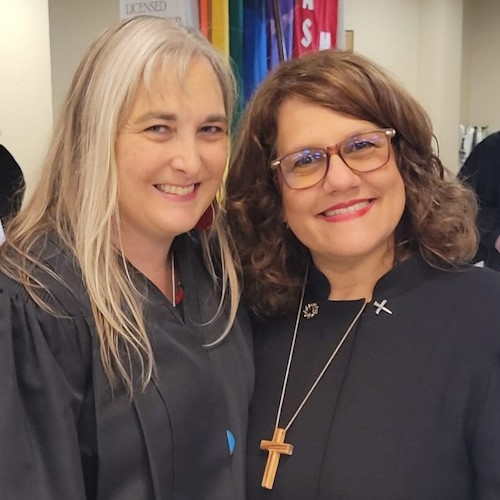

Rev. Marcela Jarman | Alumni Highlight
Rev. Marcela Jarman, (Pictured right, Master of Divinity, 2021) is Associate Pastor at Sterling United Methodist Church in Virginia.
“Growing up, religion was always a big part of my life. I felt drawn to God and wanted to serve God somehow, but I wasn’t sure how. It wasn’t until I attended a summer camp that I felt a strong calling to enter the ministry. From that moment on, I knew that seminary was my right path.
I heard about Wesley Theological Seminary through some friends at my home church. They spoke highly of the school and its commitment to training people from diverse backgrounds. I knew then that Wesley was the perfect fit for me.
I enrolled in the Master of Divinity program despite my background in architecture. It was a big change, but I was eager to learn and grow. One aspect of the program I loved was the opportunity to study with people who worshiped differently. Seeing how others approached faith and how we could learn from one another was eye-opening.
I learned much about myself and my relationship with God as I advanced through the program. I discovered strengths and weaknesses I didn’t know I had and better understood my purpose in life. The education I received at Wesley was truly a gift from God.
After graduating, I was commissioned as a Provisional Elder in the United Methodist Church. I am currently serving as an Associate Pastor at a church in Virginia, where I can put my seminary training into practice. It has been essential in helping me lead people in a healthy relationship with God and each other.
To anyone considering attending seminary, go for it! Don’t wait. It may be a significant change, but it will be worth it. Trust in God’s plan and be strong in His power. Wesley Theological Seminary is an extraordinary place with extraordinary opportunities, and I am forever grateful for the experience.”
If you would like to support the work of our students, faculty, and staff at Wesley, please click Give now to the Wesley Fund: https://www.wesleyseminary.edu/give/.
Explore Wesley



